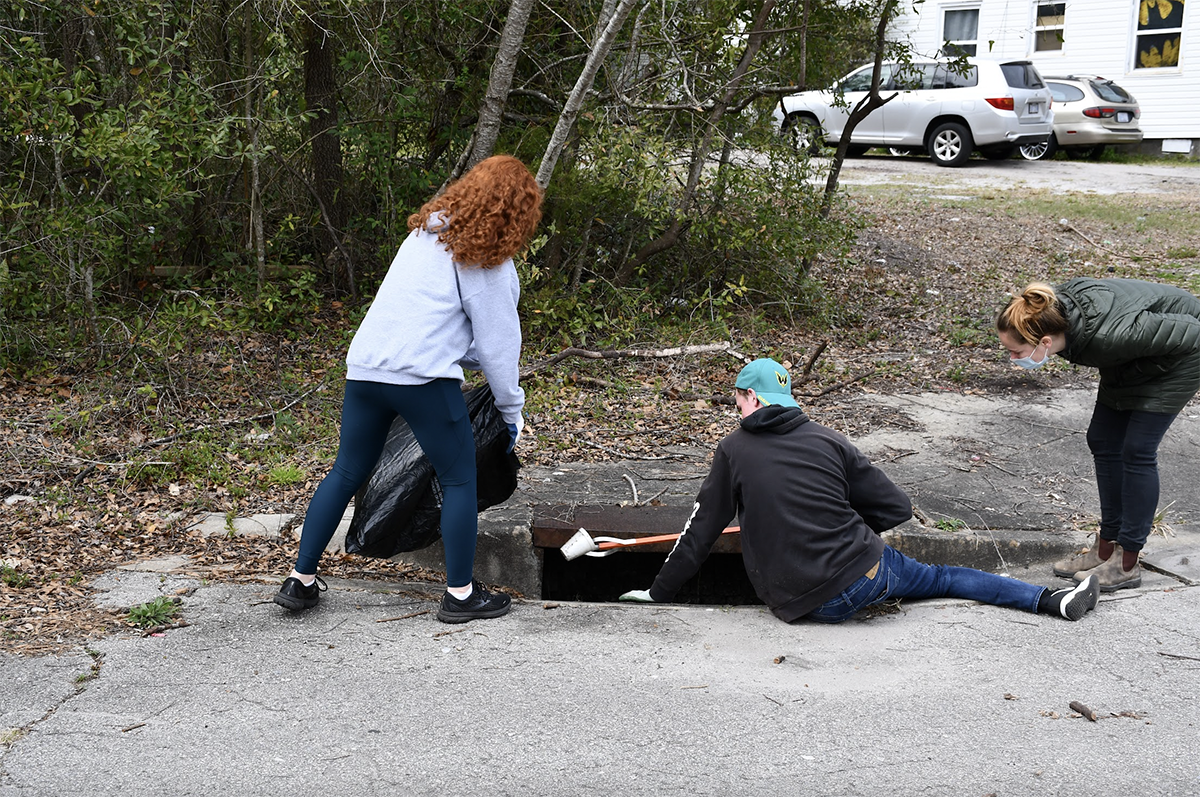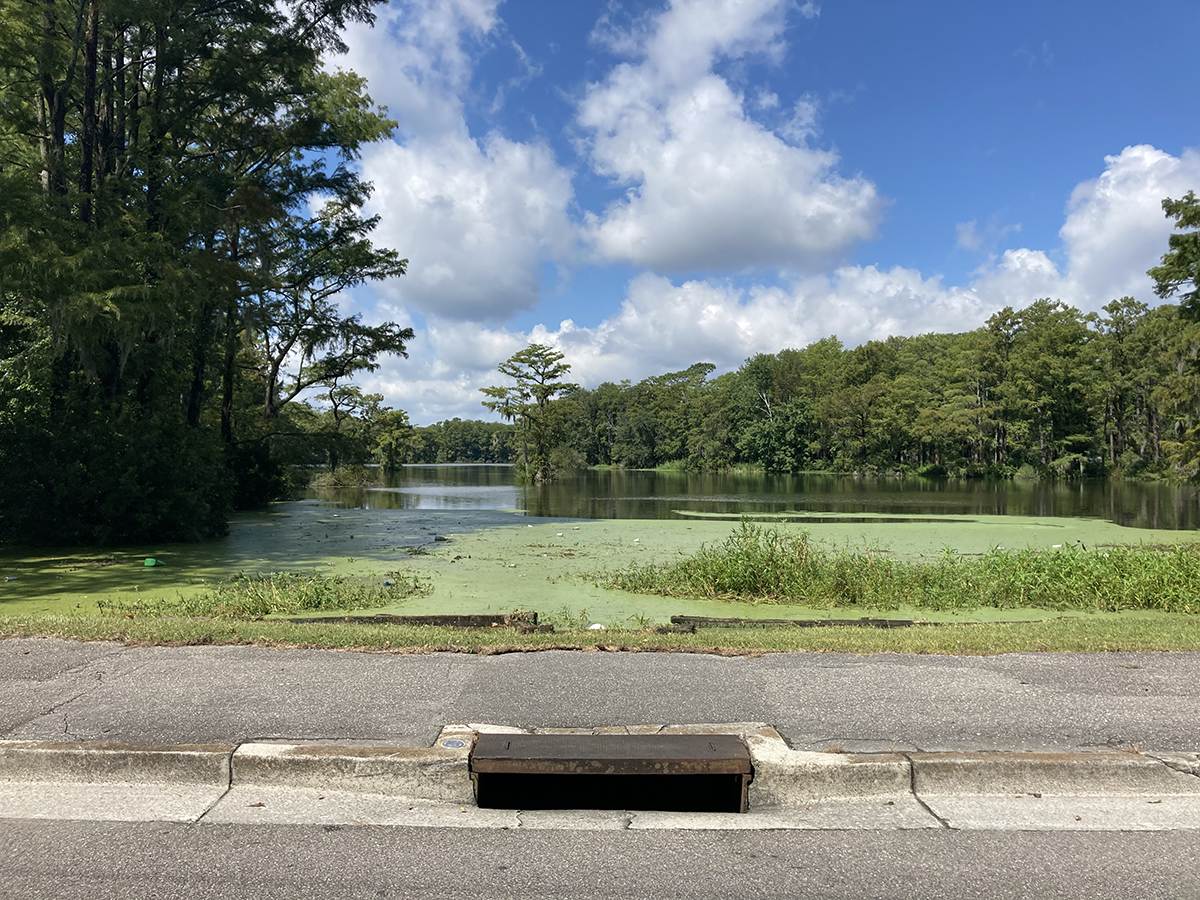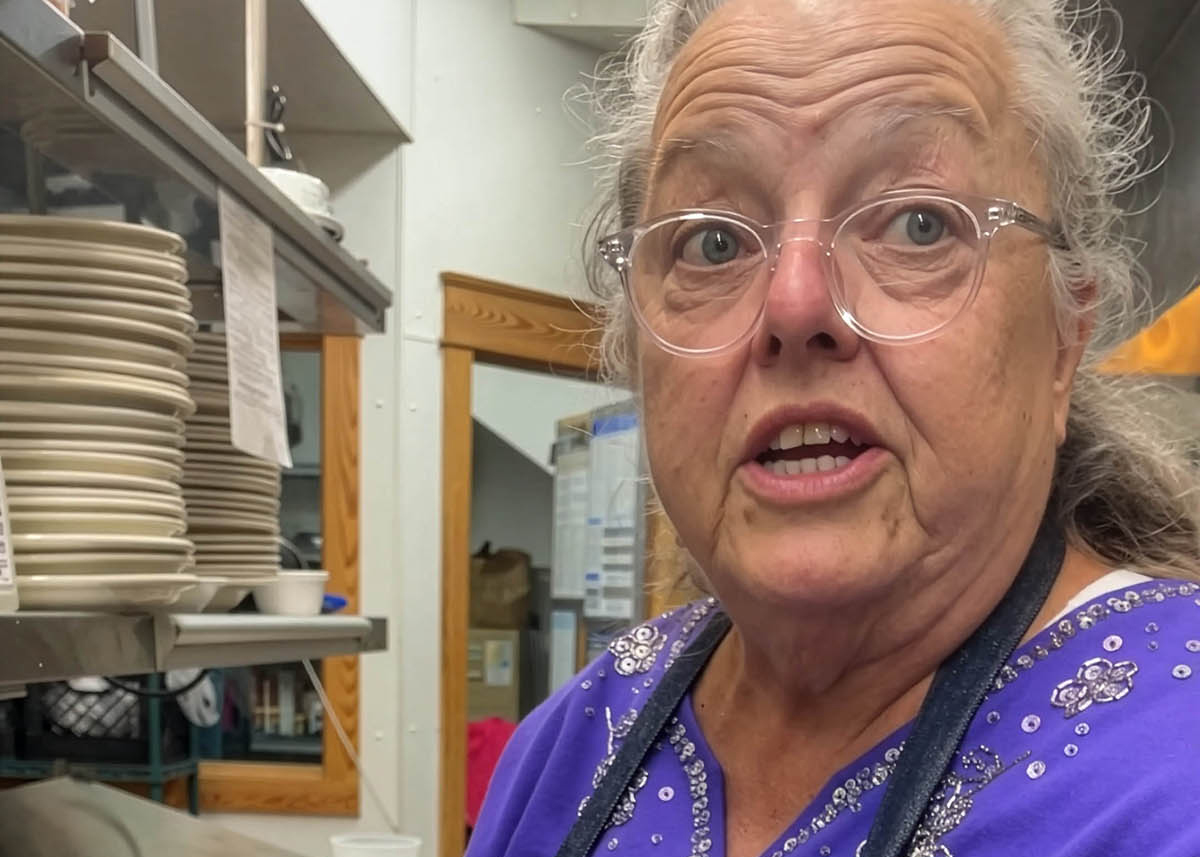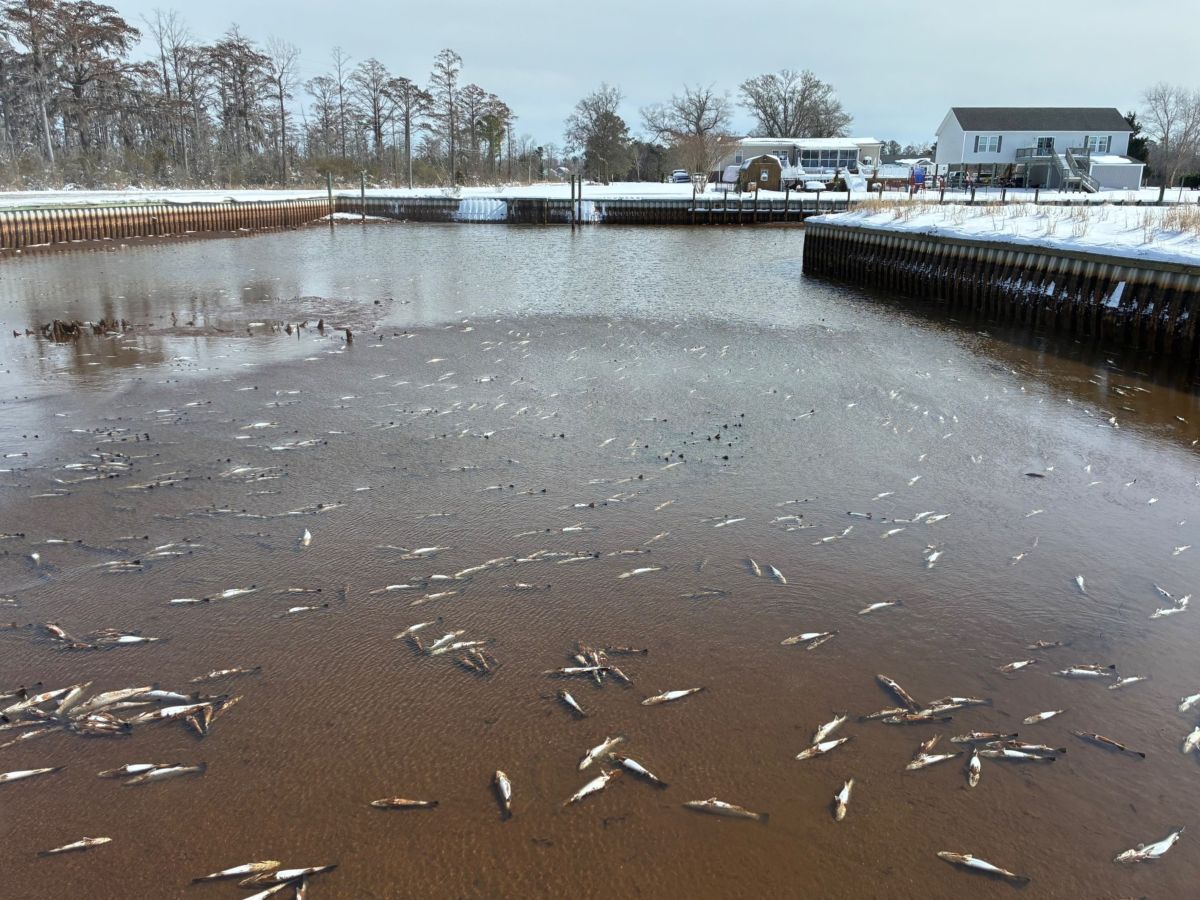
Cape Fear River Watch is launching a new project to cut down on the amount of litter getting into the Atlantic Ocean.
The nonprofit organization has purchased catch basins that are set to be installed in a handful of storm drains in Wilmington and Leland, the town that sits west across the Cape Fear River, to intercept litter from getting into the river.
Supporter Spotlight
The “80% Project” — a title referencing estimates that 80% of marine litter comes from land-based sources — will study the effectiveness of LittaTraps, catch basins designed by a New Zealand-based company called Enviropod.
Cape Fear River Watch received a grant of a little more than $9,500 to purchase four of the mesh, basket-like traps, which are designed to sit inside stormwater drains. The grant, funded by the Jandy Ammons Foundation, will also cover the cost of signage that will be placed at the drains where the traps are installed.
The traps capture trash and other debris carried by stormwater from getting into a drainage system.
Robb Clark, Cape Fear River Watch’s water quality programs manager, is overseeing the project, which entails tracking for one year what kind of trash and how much of it is captured by the traps.
The traps are to be emptied weekly, and trash and debris, such as leaves and other yard debris, captured at each drain will be sorted and then weighed.
Supporter Spotlight
Clark said that by tracking by weight the amount of trash collected from the LittaTraps, the organization will have reliable data on how much trash is being caught before it enters the river and, ultimately, the ocean. That information could turn out to be a major selling point to municipalities to budget for future investment in additional traps.
Officials in Wilmington and Leland have agreed to install traps in two storm drains. The city and town determine in which drains to place the traps, which are to be maintained by Cape Fear River Watch for one year.
Adrianna Weber, Leland’s town engineer, said in an email that if the traps are a success, “the Town will absolutely look into continuing the use of these devices and similar technologies.”
“We want to keep our community and the waterways in and surrounding our community safe and clean,” she said in the email. “LittaTraps are just one way to help accomplish this goal for our residents and the natural habitats around Leland. The Town regularly checks and cleans stormwater catch basins; therefore, the maintenance of the LittaTraps would align well with our current maintenance operations.”
Leland partners with Cape Fear River Watch to host two stream cleanups each year.
“Anywhere there are public roads and rights-of-way there is always the possibility of trash accumulating over time, but fortunately, the Town does not currently have any major issues with trash and litter,” Weber said. “Maintaining clean roadways, waterways, and public areas is important to the Town and something we maintain focus on through programs like our regular street sweeping and stream clean-ups.”
During a March 27, 2021, cleanup along Mill Creek in the Surgeon Creek watershed, about 140 pounds of bagged trash, about 70 pounds of recycling, and 100 to 150 pounds of miscellaneous trash was collected, including a flat-screen television, car seats, cushions and a large pallet, according to a report provided by Weber.
In May, about 130 pounds of bagged trash, 20 pounds of recycling and 150 to 200 pounds of miscellaneous trash, including wood, shingles, metal car parts and furniture, were picked up along Navassa Road near the creek.
Last year, more than 7,000 pounds of trash was collected from monthly litter sweeps hosted by Cape Fear River Watch, Clark said.
“The vast majority of litter that we find in our watersheds is plastic of some kind,” he said. “Cleanups alone are a Band-Aid on a bleeding artery. I could do cleanups every day and we would still be behind. You need structural solutions like this to intercept litter that the cleanups are just not going to be able to get.”

LittaTrap’s mesh basket is designed to capture and retain 100% of plastics and “other gross solids over 5mm,” according to Enviropod’s website.
Plastics in the ocean are a global problem.
According to the International Union for Conservation of Nature, an organization made up of more than 1,400 government and civil society organizations, at least 14 million tons of plastic ends up in the ocean each year.
Clark said he isn’t aware of municipalities on the East Coast using LittaTraps, but there are communities on the California coast that do.
In 2020, the California State Water Board certified Enviropod’s LittaTrap FC, or full capture, basin insert as a full capture device for trash treatment control.
The traps are available in three standard sizes to fit various catch basin structures. Custom designs and filter liners designed to capture different pollutants are also available.
Cape Fear River Watch will likely purchase liners designed to capture generic litter, such as plastic bottles and bags, Clark said.
Liners must be replaced every three to five years and cost about $30 each.
“As for the maintenance itself, they only recommend you need to go into them quarterly,” Clark said. “That’s not a lot of labor and time input. It’s very hands off. They’re designed to hold up to 600 pounds of litter or debris.”
Clark said he hopes the traps will be installed some time in February.
“Wilmington has a pretty massive (litter) issue,” he said. “I anticipate that to increase year after year based on the way Wilmington’s population is increasing. It’s important to keep these things out of the river. We get our drinking water from the Cape Fear River.”







